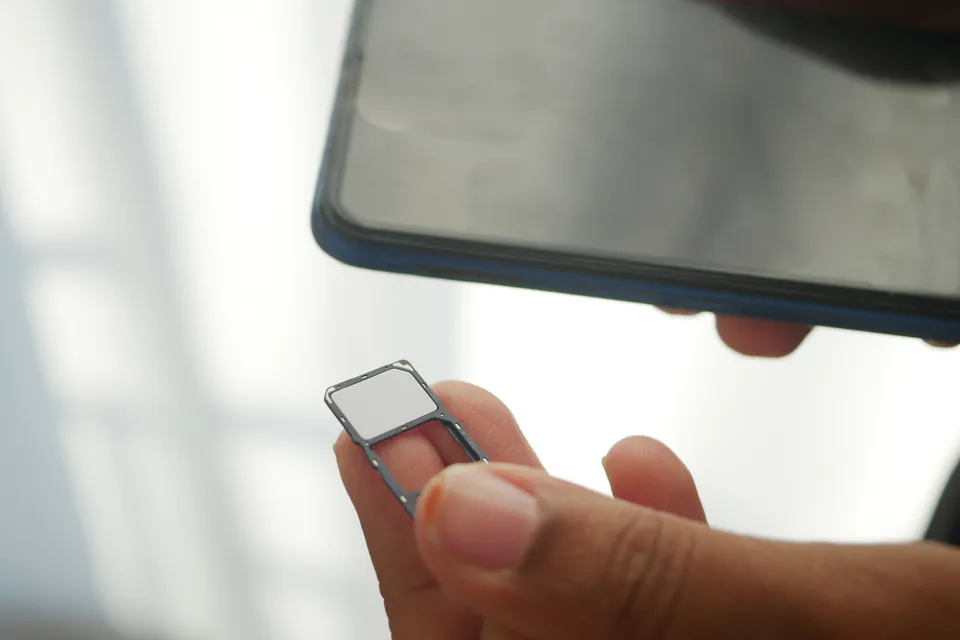Staying Connected in Budapest: Mobile Data and WiFi Options
Getting internet in Budapest is pretty important when you're trying to navigate to places like Fisherman's Bastion or share photos from the thermal baths. We always make sure to sort out our connectivity before exploring the city. Good news is Budapest has tons of options that work for different budgets and travel styles.
Local SIM Cards
Budapest has really good mobile coverage all over the city. Three big companies control most of the market, and they all have prepaid plans that work well for tourists.
Magyar Telekom (which is basically T-Mobile) is the biggest provider in Hungary. Their "Domino Fix" prepaid plans start cheap - you can get 500MB data that lasts 180 days for about 1,100 HUF ($2.80). If you need more data, their "Tourist SIM" packages give you 10-30GB for 30 days and cost between 5,500-10,000 HUF ($14-26).
We really like Vodafone Hungary because their prices are competitive and the packages are straightforward. Their unlimited domestic data plan comes with 30GB for EU roaming and costs around 11,990 HUF ($30) for 30 days. Perfect if you use a lot of data.
Yettel Hungary (they used to be called Telenor) keeps things simple with their "Pay As You Go" options. You can get 1GB for 1,100 HUF ($3), 3GB for 2,500 HUF ($6.30), or 5GB data-only for 3,300 HUF ($8.40). All of these last 30 days and work throughout the EU.

Where to Buy SIM Cards
You've got a few places to pick up a SIM card in Budapest:
Airport: This is the easiest option but you'll pay more. At Budapest Ferenc Liszt International Airport, go to the Universal Airport Hub in Arrival Hall 2B (it's next to the Spar Supermarket) where Yettel sells tourist SIMs. We learned the hard way that airport prices can be crazy high - Yettel's 50GB plan costs around 15,000 HUF ($52) at the airport compared to much cheaper prices in the city.
City Center: For better deals, just visit the actual stores of Vodafone, Telekom, or Yettel in downtown Budapest. You can find them easily on Google Maps and they have all the prepaid options at normal prices.
Online: Companies like SimOptions let you order a Hungarian SIM card online and either have it delivered or pick it up. Plans start from $15.90 for 15GB that lasts 15 days.
Major SIM Card Providers
| Provider | Plan | Data Allowance | Validity | Price (HUF/USD) |
|---|---|---|---|---|
| Yettel | Pay As You Go | 1GB + 50 min | 30 days | 1,100 HUF ($2.80) |
| Yettel | Pay As You Go | 5GB data-only | 30 days | 3,300 HUF ($8.40) |
| Vodafone | Unlimited | Unlimited (30GB in EU) | 30 days | 11,990 HUF ($30) |
| Telekom | Domino Fix | 1GB + 80 min | 30 days | 1,990 HUF ($5) |
| Telekom | Travel SIM | 100GB (56GB in EU) | 30 days | €41.67 |
Registration Requirements
Here's something that can be annoying - Hungarian rules say you need to show your passport when buying a SIM card. This can be a pain for tourists, especially when stores are busy. Here's what happens:
- You show your passport to the store person
- They put your information into their system
- They activate the SIM card so you can use it right away
If you're not from the EU, you might need to fill out extra paperwork with some providers. Sometimes there can be issues with certain phone frequencies not working properly.
eSIM Options
If your phone can handle eSIMs, this is a really convenient option that skips the physical SIM card completely. You can buy and set up an eSIM before you even get to Budapest, so you'll have internet as soon as you land.

Several companies sell eSIMs that work in Hungary:
Jetpac has data-only plans from 1GB for 4 days ($1) up to 40GB for 30 days ($35). They use Yettel/Vodafone networks and you get 5G where it's available.
Airalo has plans from 1GB for 7 days ($4.50) to 20GB for 30 days ($36). They work on the Yettel network.
SimOptions has Europe-wide plans that include both data and calls. They start from $15.90 for 15GB valid for 15 days, going up to $55.90 for 70GB plus unlimited calls for 28 days.
The best things about eSIMs are that you don't have to deal with registration hassles, you can't lose a physical SIM, and if your phone has dual-SIM you can keep your home SIM active too. But you need to make sure your phone actually supports eSIM before you buy one.
Pocket WiFi Rentals
If you're traveling with family or a group, pocket WiFi rentals are pretty great. These little devices create a private WiFi hotspot that lots of devices can connect to at the same time.

A few companies rent out pocket WiFi in Budapest:
HippocketWifi gives you unlimited WiFi starting from €3.95 per day, but you have to rent for at least 3 days. Their devices can connect up to 10 devices and they can deliver to the airport or your hotel.
My Webspot charges around €6.40 per day for unlimited internet, but you only get 1GB at high speed each day (after that it slows down to 512kbps).
XOXO WiFi has unlimited data plans from €6.90 per day. Their routers automatically connect to whatever network is best.
Renting a pocket WiFi device means you don't have to mess around with changing SIM cards, and you get a secure private connection for everyone in your group. The daily costs can add up if you're staying longer, but for short trips with multiple people, it's often cheaper than buying individual SIM cards.
Public WiFi Networks
Budapest has free WiFi all over the place, especially in tourist areas. It's convenient but there are some big problems with security and reliability.

You can find public WiFi at:
- Cafés, restaurants, and bars (usually you need to buy something to get the password)
- Hotels and places you're staying
- Shopping malls and some public squares
- Major tourist spots
The main problems are that connections aren't stable, quality is often poor, and there are serious security risks. Public networks are easy targets for hackers, so you shouldn't use them for online banking, payments, or anything sensitive.
If you do use public WiFi, we recommend using a VPN service like NordVPN or ExpressVPN for extra security, and don't do any sensitive transactions.
Choosing the Best Option
What works best really depends on what you need:
For short stays (1-3 days): eSIMs or pocket WiFi rentals are most convenient. Jetpac's 5GB plan for $7 that lasts 30 days would cover a weekend trip without having to deal with physical SIMs or registration.
For longer stays (1+ weeks): Local SIM cards give you better value. Yettel's 5GB data-only plan for $8.40 or Vodafone's unlimited data plan for $30 will be cheaper than paying daily pocket WiFi rental fees.
For EU residents: Check if your home plan includes EU roaming under the "Roam Like at Home" policy. You might be able to use your domestic plan in Hungary without extra charges.
For groups: Pocket WiFi rental at €3.95-6.90 per day lets everyone share one connection, so you don't need multiple SIM cards.

Connectivity Options Comparison
| Option | Cost Range | Best For | Pros | Cons |
|---|---|---|---|---|
| Local SIM Card | $2.80-$30 | Longer stays | Affordable data, local calls | Registration required, passport needed |
| eSIM | $1-$55.90 | Short-term visits | Easy activation, no physical card | Requires compatible phone |
| Pocket WiFi | From €3.95/day | Groups, multiple devices | Connects multiple devices, no SIM change | Higher daily cost, need to carry device |
| Public WiFi | Free | Light browsing | Cost-free | Unstable, security risks |
Practical Tips
To get the most out of your connectivity in Budapest:
Skip the airport purchases if you can - SIM cards at Budapest Airport can cost up to 3 times more than in city center stores.
Download offline maps before your trip to use less data. Google Maps lets you download Budapest maps for offline navigation.
Keep an eye on your data usage so you don't get unexpected charges or have your speed slowed down.
Get a VPN for extra security when using public WiFi networks.
Check compatibility before buying - make sure your phone is unlocked and works with European networks (most modern phones do).
